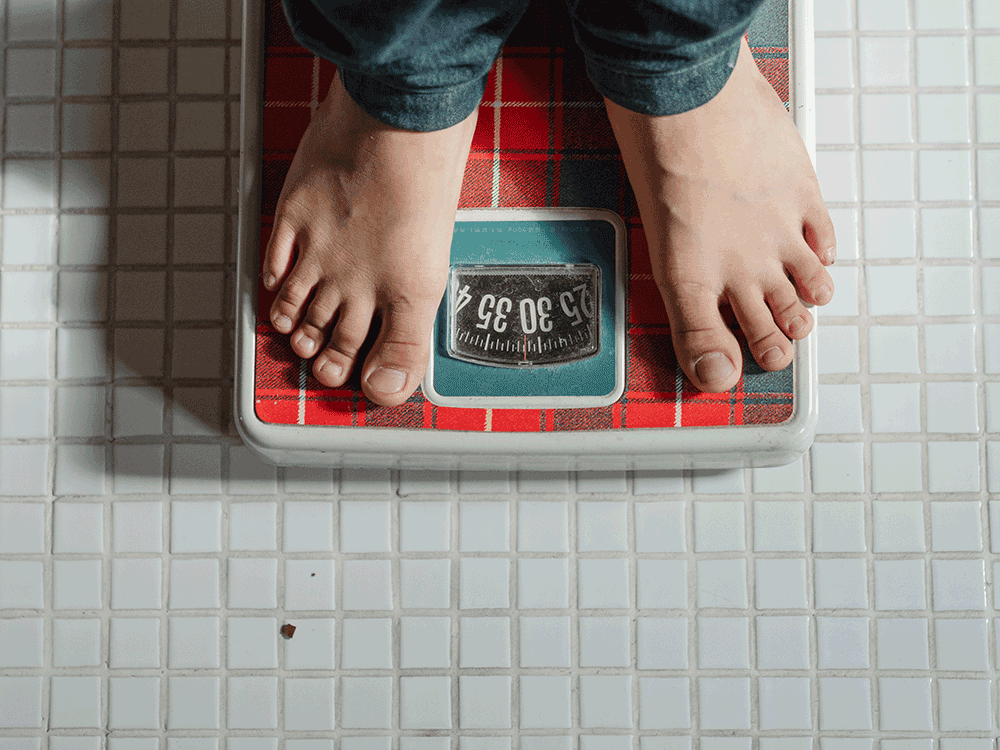Your mental health and weight interact in many ways. There is often a mental wellness and mindset piece to your weight, or your weight could impact your emotional well-being. As you navigate your recovery, many factors can influence your weight. You might face challenges related to the following:
Weight Gain/Loss
What is it? Depending on your mental health challenges and your recovery plan, you might gain or lose weight beyond what you’re used to. Your weight may change faster than you expect, or you may gain/lose more overall than is typical for you.
How can recovery impact this? Weight gain is a common side effect of many mental health medications. This is often because of how they interact with chemicals and hormones that control appetite [link to upcoming digestive/gut article]. There’s also evidence that certain medications are associated with metabolic syndrome – a cluster of factors that increase the risk of heart disease, stroke, and type 2 diabetes. Some medications – primarily stimulants – are associated with weight loss. Weight changes aren’t always related to medication – they can also be due to lifestyle and/or mindset changes. This is especially true for individuals recovering from eating disorders, heavy substance use, and/or other mental health challenges in which their appetite or metabolism was severely affected. If your weight changes seem extreme, persist for a long time, or you lose a lot of weight at once, consult your primary care provider to ensure there isn’t another cause.
Difficulty Maintaining Steady Weight
What is it? Change in body weight is part of being human – the average adult’s weight changes 5 or 6 pounds in a day depending on factors like food and water intake, exercise, and sleep. People who menstruate often experience additional changes on a monthly basis. These changes are lifelong and unavoidable. Weight changes related to mental health and recovery may be more significant, recurring, and complicated to manage, making it difficult to set up a healthy routine.
How can recovery impact this? Recovery is full of ups and downs, and as you go through different stages in healing, your weight might do the same. Mental health triggers and episodes will likely still occur, which your weight may respond to. It is also common for individuals with chronic mental health conditions to use varying medications and treatments at different points in their recovery. You may experience weight change after your medication changes because of how it affects your body.
Negative Body Image
What is it? Your body image refers to how you view your physical self and is entirely subjective. Negative body image is when you’re unhappy with how you look – you might wish you were smaller than you are or see yourself as scrawny despite having a muscular build.
How can recovery impact this? Weight changes during recovery may make it difficult for you to have a clear picture of what you look like. This can feel unsettling, especially when you’re around other people. Weight shifts also mean adjusting to life in a new body, including one you might not like.
What to Do
- Talk to your doctor. If you’re worried about or unhappy with your weight or body, they can help you figure out healthy next steps to gain/lose weight, stabilize weight, or cope with body image challenges.
- Consider a medication change. If your medication is helping with your previous mental health symptoms but causing weight-related side effects that you’re unable (or unwilling) to tolerate, that medication may not be the best fit for you. Work with your mental health care provider to discuss other medication options. Don’t make any changes without consulting a doctor first – stopping abruptly can make withdrawal symptoms worse and is dangerous for some medications.
- Be consistent with nutritious eating, exercise, and sleep. Try to focus less on your weight and size and more on healthy habits – eat nutritious food, move your body in ways you enjoy, and get enough rest. You may still struggle with weight changes or body image, but paying attention to these basic needs can help you feel better physically and mentally.
- Unlearn fatphobia. Fatphobia refers to bias towards overweight individuals that considers heavier folks inferior physically, morally, and in terms of health compared to thinner people. Work to change your thinking about body size, self-worth, and being desirable.
- Get clear on your boundaries and set them. Maybe you don’t want to know your weight at your annual physical or are dreading family members commenting on your body at the next gathering. Know what behaviors you are and aren’t okay with from the people in your life, and be ready to express your needs.


